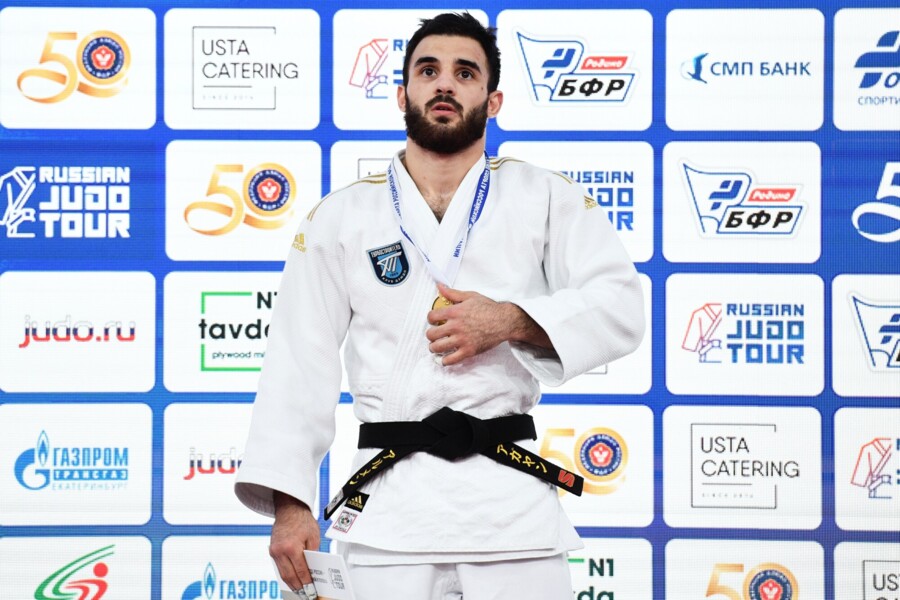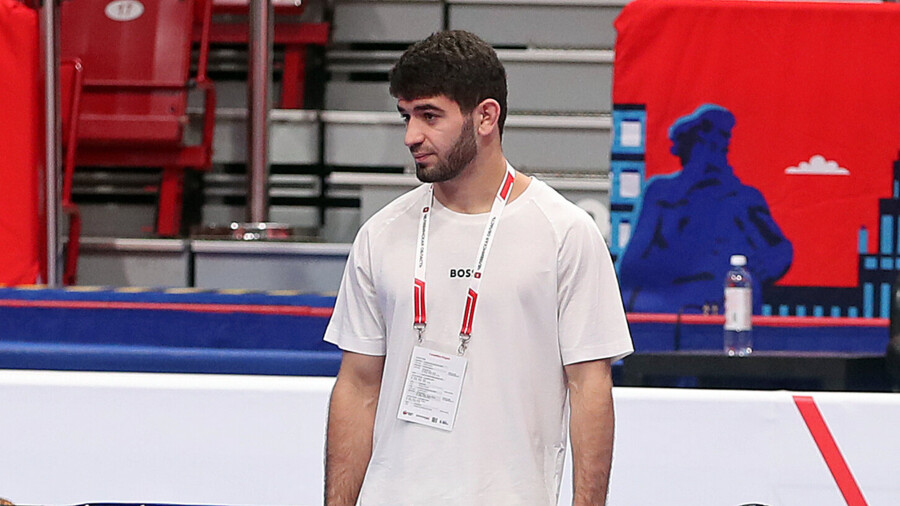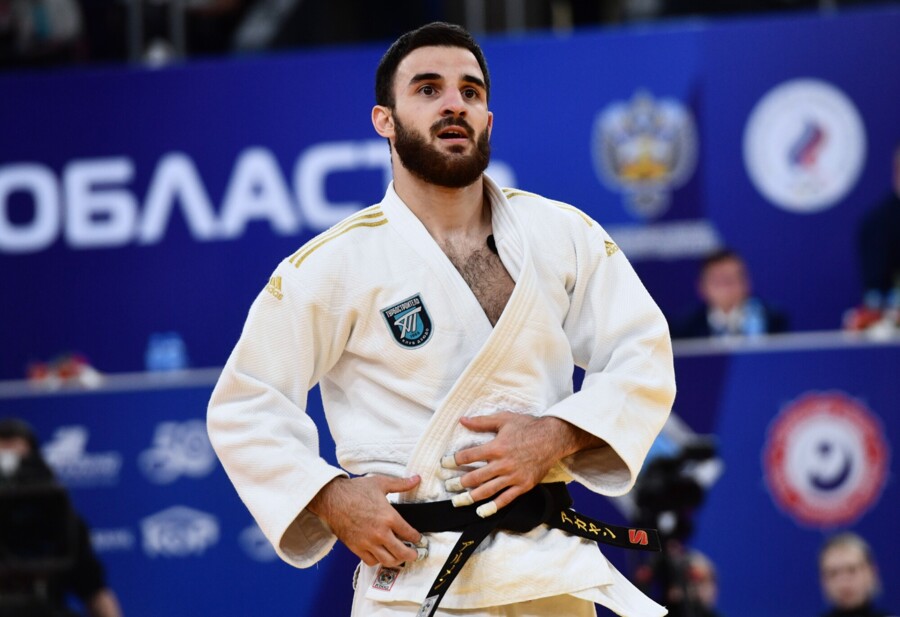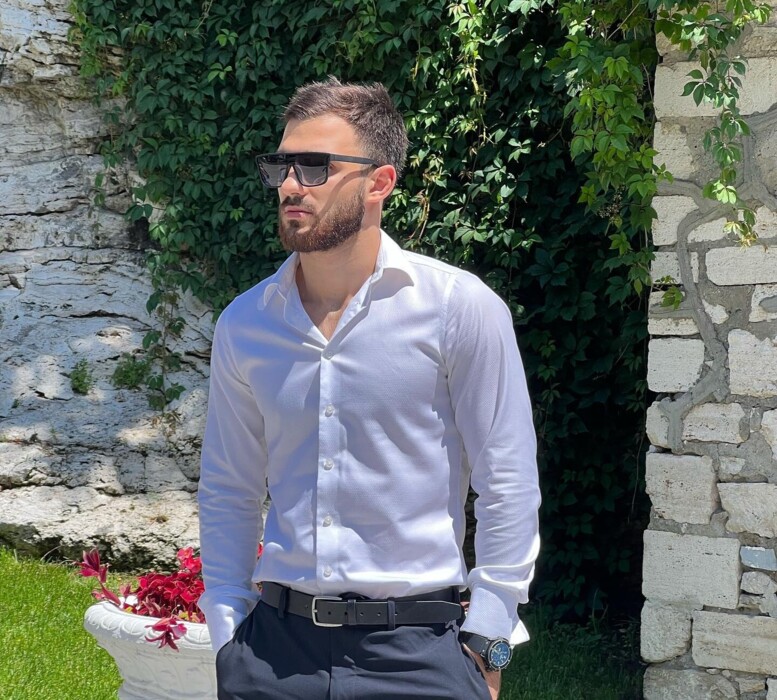End of September Armen Aghayan won gold at the Russian Judo Championship. This is his second consecutive victory in this tournament. However, we cannot see him on the international stage now – in the middle of the calendar year our judoka received a ban from the international federation.
In an interview with , Aghayan spoke about his emotions after being excluded from world tournaments, his inner state, the meaning of training without competition, his personal life and plans for a sports career.
“I HAVE ONE TASK: TO WIN. LET AT LEAST ONE OLYMPIC CHAMPION BE AMONG YOUR RIVALS”
— How did you celebrate your victory at the Russian Championship?
— I usually get everyone together at the end of the year and celebrate my results. And after the competition, I didn’t really party.
— After the tournament, surely you at least went somewhere with your family to celebrate?
– Yes, that was the case (laughs).
— Last year, at the Russian Championship in Yekaterinburg, your opponent was Ayub Khazhaliev in the semifinals, and in the final you fought with Kazbek Naguchev. It seemed that this year there were opponents of lesser status.
“This year, almost the same team was competing. But the status doesn’t solve anything. All the opponents are really strong. Maybe I was able to play that way because of my experience, but they also fought well there (laughs).
— Is there a difference in atmosphere when you go out to fight against members of the national team or against judokas of lesser status?
– In terms of attitude, yes, but during the fight itself there is not much difference: I have one task: to win. At least one Olympic champion in the competition, at least someone else.
“When you were not allowed to fight, even under a neutral flag, there was only one disorder”
— Let’s remember the last Russian championship. You won it, and what were your plans after this victory?
“There was a situation where no one was allowed to go anywhere. And I felt like I was in good shape. I understood that as soon as the opportunity presented itself, they would put me in an international tournament. And that’s what happened. The first competition we were able to attend was the World Judo Championship. I was told to get ready, so I did. But ultimately I remained in reserve. After that, the coaches put me at the Grand Slam stadium in Astana, at the Dushanbe Grand Prix. An unpleasant thing happened: I received a ban from the International Judo Federation. They were not allowed to fight, even under a neutral flag. At that point, there was frustration. Now this issue is being resolved, so you will soon be able to see me at international tournaments. Well, I hope so.
— How did you feel when you discovered this public bath?
– I remember that day. I was preparing for the Grand Slam stage in Astana, Kazbek Naguchev was in Dushanbe at the same time, already at the weigh-in. They tell him the same thing as me: he won’t fight. We both found ourselves in this ban. I had an emptiness inside: I hadn’t participated in the World Championships, they were taking away another international competition and the Olympic Games were taking place in a year. Everyone wants to go to the Olympics, it makes no sense to just train. I called the coaches and parents, they encouraged me. But it was hard.
– What did my father say?
– That everything must be decided. But he was also upset.
— Have you ever thought about retiring from your career?
“It didn’t happen, but it seemed to me that I was starting to think: why then train now? But all these thoughts are gone. Now I continue to fight and I am determined to win.
“ONE MISTAKE AND YOU LOSE. THIS RULE SHOULD BE FIXED A LITTLE”
— At the World Judo Championship, Makhmadbek Makhmadbekov performed unsuccessfully. Did you have any ideas at that time: people say I could get into the top three?
— We have good relations, we always congratulate each other. I would like to play it. I was definitely capable of placing in the top three.
— What is your relationship with the guys of the Russian national team who compete in the weight category up to 73 kg?
— In sport, it happens that relationships are good, but from the outside everyone envies each other or wants this or that person to lose. With us, it’s the opposite: we can say it directly to each other. Like, I would beat you and all that. We laugh, we all want to win and we don’t hide it: healthy competition.
— Is the weight category up to 73 kg the most competitive?
– Yes. Today, Sohei Ono (two-time Olympic champion), the main leader, ended his career, so it will be very difficult to guess who will get on the podium in the weight category up to 73 kg at the Olympics.
— The Grand Slam stage recently took place in Baku. In the weight category up to 73 kg, two Russian judokas fought for bronze – Makhmadbek Makhmadbekov and Danil Lavrentyev. Did you watch this fight?
“I only saw the last moment, fatal for Lavrentiev. I don’t know how the fight went, some say Danil led, others say the opposite. But the fight went like this.
— Lavrentiev received a red card (hansoku) for diving with his head. In the Chechen Republic, we saw that fights often ended the same way: people were punished for hitting their heads on the tatami during a throw. What do you think of this new rule?
“That’s how I won the final.” In such moments, we don’t feel the taste of victory. After that, you start to think: how to stop? My favorite techniques used to be to touch my head to the mat. All my life I have been taught this way. And now I was struggling and thinking: how can I stop so as not to lose.
– It turns out that we have to relearn…
“A month before the competition, I learned how to do a new lift to stay on my leg without falling. I would understand if they warned me first and then immediately disqualified me. One mistake and you lose. This rule should be slightly corrected in the near future, because many strong athletes lose for no reason.
— Do you have any idea why this rule was invented in the first place?
– For the safety. But I have yet to see athletes injure their necks while performing this or that technique.
“THE MOST DIFFICULT IN COMPETITIONS IS TO WIN THE FIRST CONTACT, THERE ARE NO MORE NERVES AND EXPERIENCES”
— How do you prepare for competitions?
— What helps me is rest a week before the tournament: getting enough sleep so that there is less stress. I need to go into the tournament rested, then I’m in the mood, the throws come, I can fight for at least 30 minutes.
— How do you relax in the evening before the day of the competition?
— I usually turn on a movie before bed to keep my mind off the fight. And I fall asleep peacefully.
— How not to lose your competitive tone during the breaks between fights?
— The hardest part is the first contraction. After that, there are no nerves and worries left. You must prepare for the first fight. Then it’s easier.
— Is it easier for Armen Aghayan to fight early in the competition or when your fight is a little later in the schedule?
– Request for interest. Many people say, “Why do I struggle with the first contraction?” But for me there is no difference. There were different cases in my career: I fought straight away and waited four hours.
“As I train, I plan to take whatever I can”
— Do you have any hobbies other than judo?
— Recently I started studying foreign languages, I like it. English French. I didn’t like it before, but now I want it. If I had free time, I would at least compose music.
— How many practices per week now, if you’re not at training camp?
— I do one workout a day, then two, I alternate. Before the Russian Championship, I had a busy schedule: 2-3 training sessions per day.
– How is your day?
“I’m the type of person who can’t be woken up at 7 a.m., even if I go to bed at 11 p.m., because I don’t fall asleep until 1 a.m.” I usually wake up at 9 a.m., work out at 10 a.m., then work out in the evening.
— You live in St. Petersburg, but you are originally from Pyatigorsk…
— I moved when I was 15, Mikhail Anatolyevich Rakhlin invited me to train with him. Three years later, the parents moved.
— How did you feel after leaving Pyatigorsk for such a metropolis? It is believed that in such cases the athlete begins his so-called “adult life”…
— I lived at the Olympic reserve school, I had friends there. I didn’t feel particularly independent, as I spent all day studying and training.
— Do you have any favorite places in St. Petersburg?
— Krestovsky Island, city center. I usually spend time there with my friends.
— What would Armen Aghayan want to do after finishing his career?
— There are plans, but it’s too early to talk about them (laughs).
— What is your overall goal for your sporting career?
– Everyone will say they want to win the Olympic Games. I want to achieve as much as possible in judo: to win everywhere, in two or three Games. I want more. For now, I’m training and plan to take as much as I can.
Source : MatchTV
I am Ashley Ortiz and I am a professional journalist working for Athletistic. My specialty is in sports journalism, particularly boxing. I have written articles for some of the most renowned publications on the subject, and my work has been featured across both print and digital media platforms.







